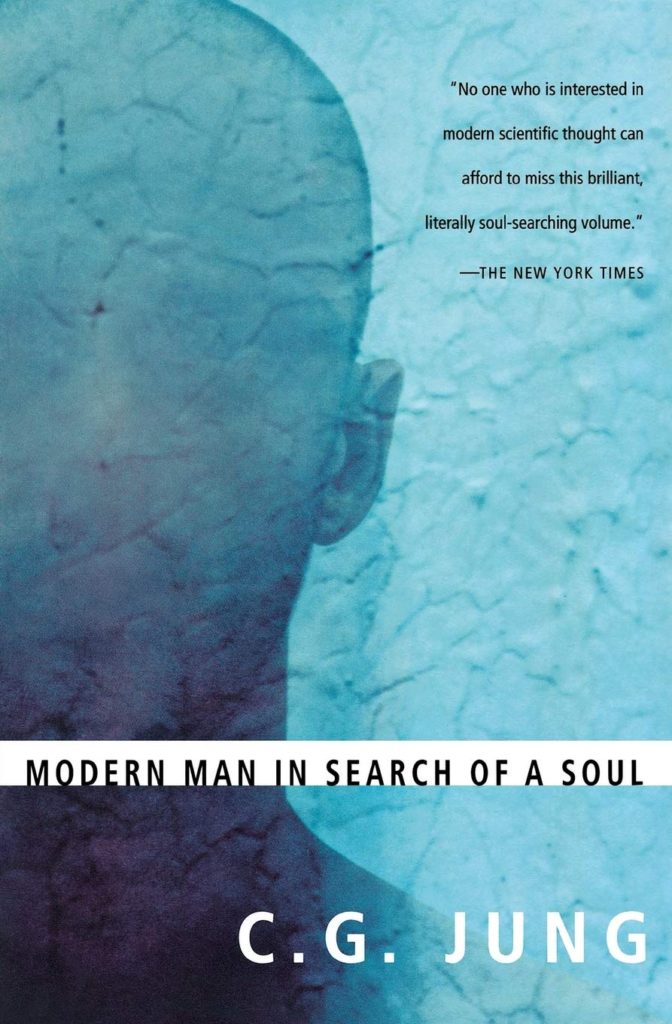Carl Jung, I assume, needs no introduction, but Modern Man In Search Of A Soul – a collection of his lecture and one original essay – was my first foray into the work of the famous Swiss psychologist. This volume was consciously assembled to serve as an introduction to his thought, and consequently it is rather wide-ranging: we get essays on dream analysis; theorizing about the present and future states of psychoanalysis; introductions to Jung’s idea of the collective unconscious; a meditation on the differences between his approach to psychology and Freud’s; and a pair of essays specifically addressing themselves to the state of “modern man,” bereft of his religious faith and yet still desperately in search of meaning and purpose. Unlike Freud, Jung took religion seriously, refusing to reduce it to a mere psychological defence mechanism, or as the outgrowth of human neuroses; rather, he viewed religion as Freud viewed literature: as an attempt to grapple with the most vital and lasting spiritual questions facing mankind.
A manifestation of the high regard he has for religion and mythology is his serious, unselfconscious use of the word “soul,” and his desire to separate psychological maladies like complexes and neuroses from spiritual and existential concerns. “About a third of my cases are suffering from no clinically definable neurosis,” he tells us, “but from the senselessness and emptiness of their lives,” a condition he goes on to describe as “the general neurosis of our time.” This struck me as a rather remarkable admission from a psychologist, but he develops this idea further after defining what, exactly, psychic complexes are:
According to our best knowledge about them, complexes are psychic contents which are outside the control of our conscious mind. They have been split off from consciousness and lead a separate existence in the unconscious, being at all times ready to hinder or to reinforce the conscious intentions. […] Complexes obviously represent a kind of inferiority in the broadest sense – a statement I must at once qualify by saying that to have complexes does not necessarily indicate inferiority. It only means that something incompatible, unassimilated, and conflicting exists – perhaps as an obstacle, but also as a stimulus to greater effort, and so, perhaps, as an opening to new possibilities of achievement.
Is there anyone for whom this definition does not resonate? Anyone who cannot recall a time when some unnamed inner force thwarted their conscious ambitions? How many millions, each year, throw up their hands in frustration at their inability to quit cigarettes or lose weight, despite the most sincere efforts of their conscious minds? For Jung, man is not and cannot be an entirely rational being: “The great decisions of human life have as a rule far more to do with the instincts and other mysterious unconscious factors than with conscious will and well-meaning reasonableness.” It is this train of thinking that prompts one of his most insightful meditations, on who is more useful to modern man: the priest or the psychologist. Decades of criticism have drawn the obvious parallel between the priest taking confession from the penitent sinner and the troubled soul, in reclined chair, pouring their heart out to an attentive therapist. Without deprecating the former – indeed, while being a practicing therapist himself – Jung asserts that the modern man is more often assailed by spiritual/philosophical problems.
What will he [a doctor or physician] do when he sees only too clearly why his patient is ill; when he sees that it arises from his having no love, but only sexuality; no faith, because he is afraid to grope in the dark; no hope, because he is disillusioned by the world and by life; and no understanding, because he has failed to read the meaning of his own existence?
My generation luxuriates in material comfort inconceivable to our ancestors, and yet our very ease has made us vulnerable to existential doubt to an unprecedented degree.
I approached this volume, I admit, with a fair bit of skepticism, born of my mistrust of much psychological theory. My concerns were considerably allayed by Jung’s humility: again and again he reminds us that his discipline is only in its infancy, that it is highly conjectural, and that his individual patients have confounded most of his attempts to generalize from their experiences to the common man or woman. And yet, when he does conjecture, say, when he ventures an explanation for a common psychic phenomenon, his insights seem to me compounded of common sense, experience and a deep engagement with our literary and philosophical heritage. Jung does not merely rescue religion and mythology from the ravages of Freudian psychology; he anchors psychology in religion and mythology, illuminating both.
